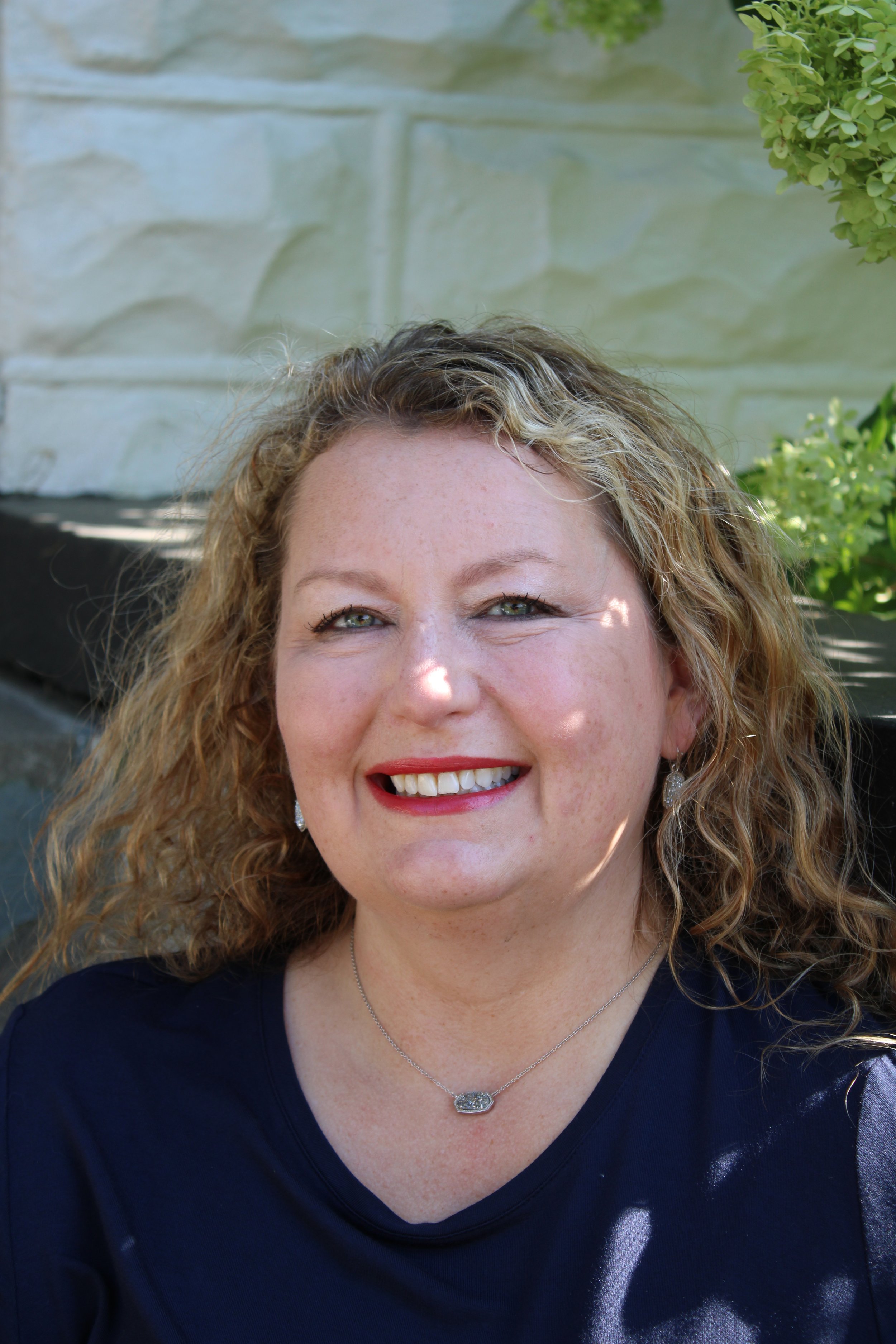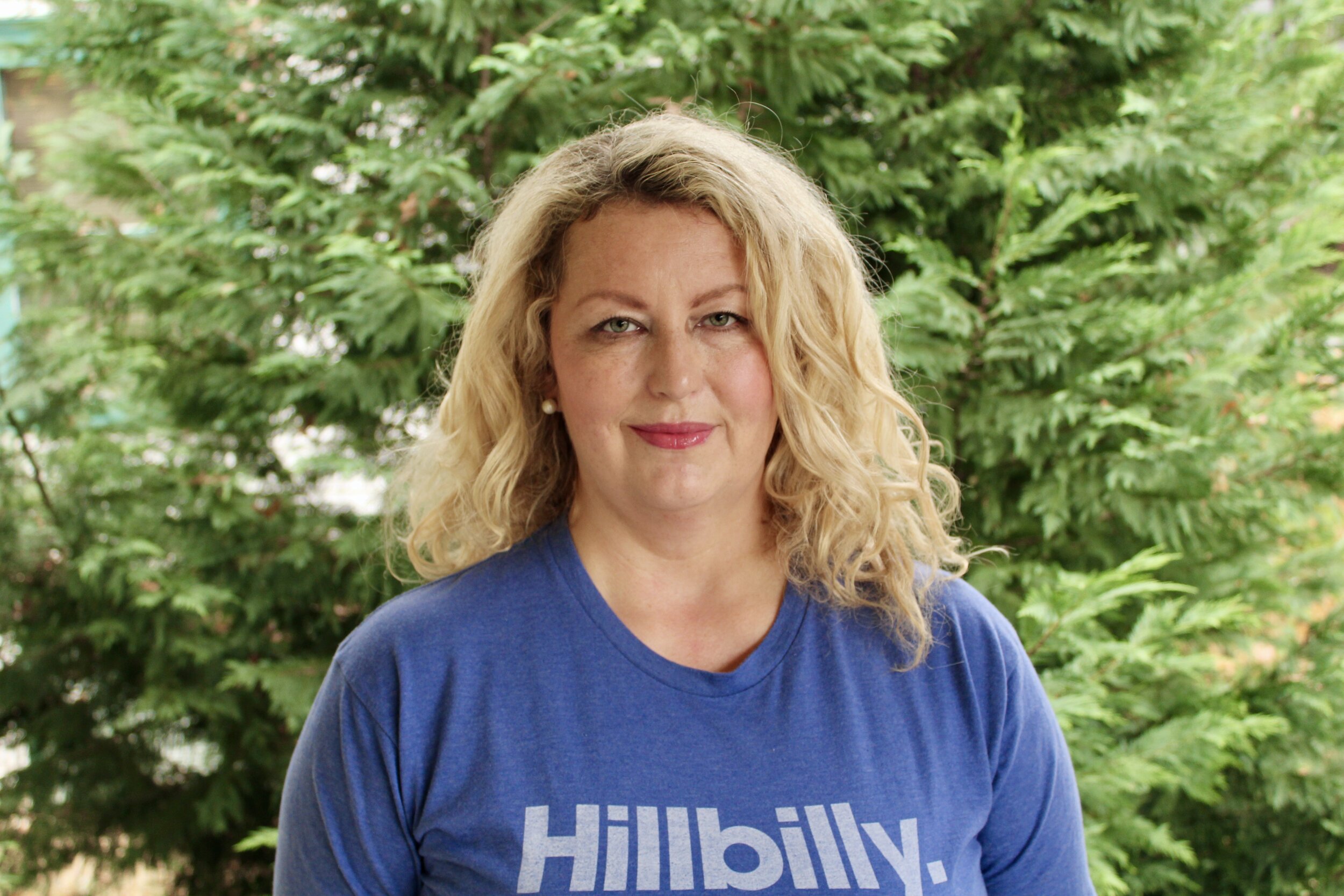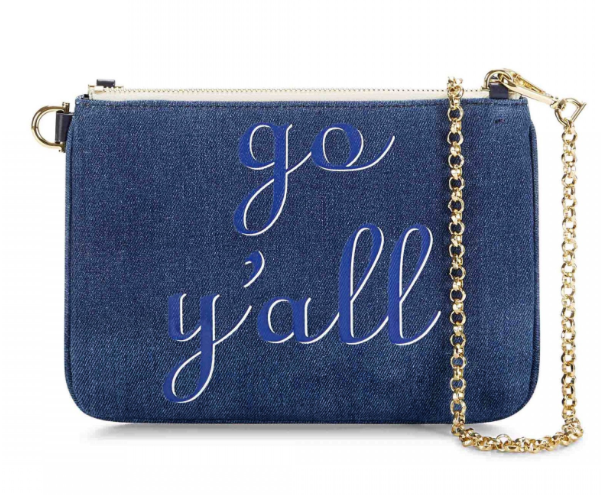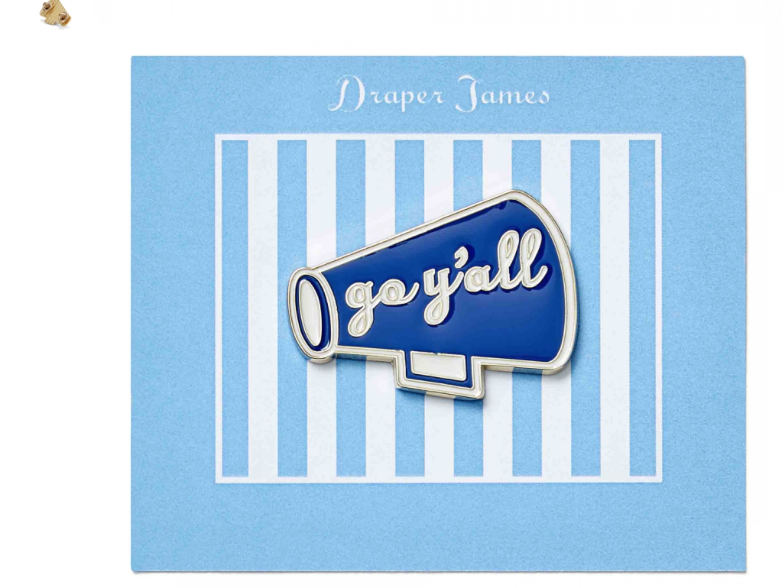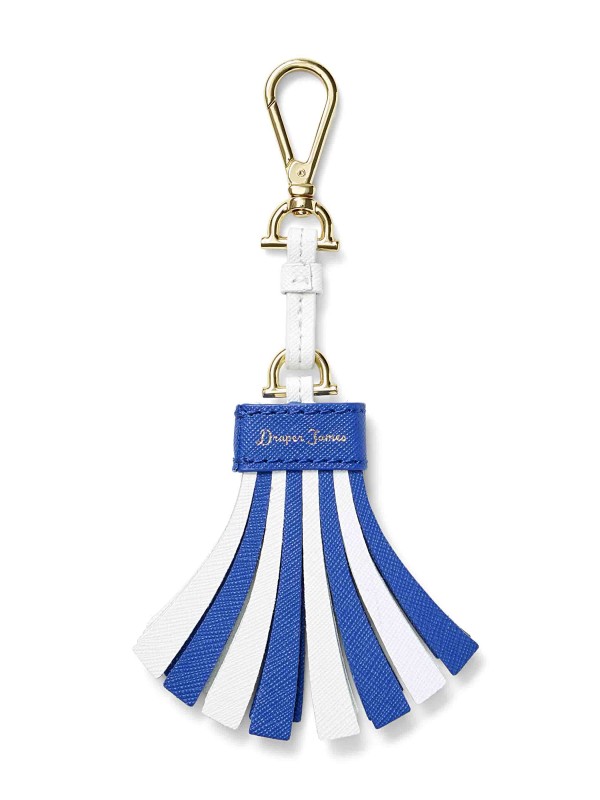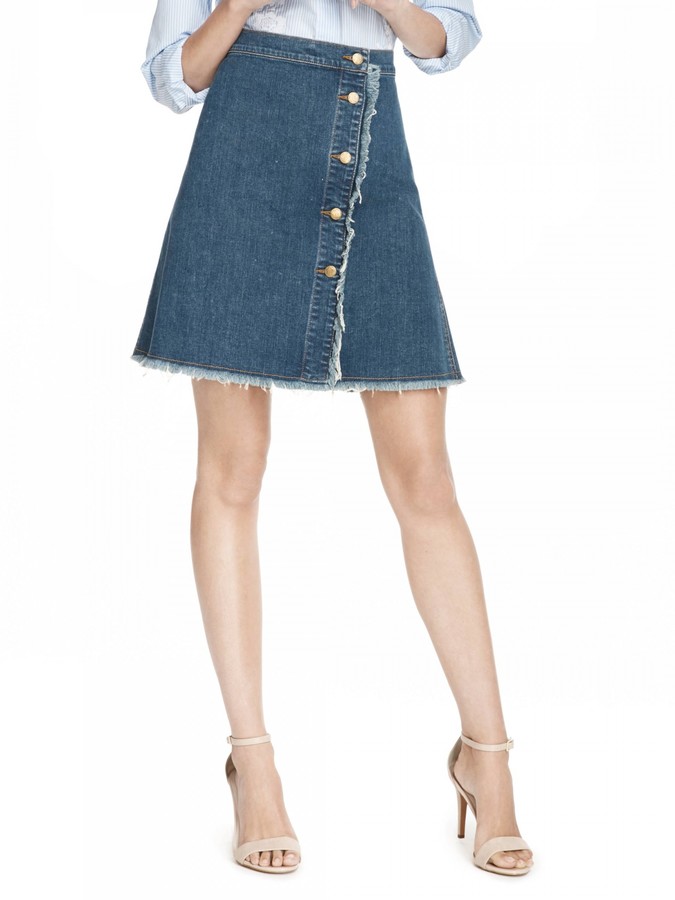Kendra Scott and ARH Foundation Give Back to Eastern Kentucky
Shop Kendra Scott to benefit Appalachian Flood Relief!
Hey y’all.
As I’m sure you all know, my hometown and many of the nearby towns and hollers were impacted by severe flooding earlier this month. I legitimately don’t know how to describe the feeling of seeing my hometown — the place where my family and friends live and work and go to church, where my grandfather taught school, and where my parents met — on The Weather Channel as being only a few miles from the epicenter of flooding activity. I’m so thankful that my family is safe and sound, but a lot of our friends back home were impacted pretty extensively. Homes and lives were lost, schools were destroyed, and people have been trapped in remote areas when their roads quite simply washed away.
It’s been devastating to see such extensive loss, but it’s also been amazing to see how communities have come together. In my home county, volunteers are providing meals and necessities to those who are in need. I’ve heard so many amazing stories of how friends and neighbors are helping one another recover and thrive. It’s going to take time, hard work, and a lot of assistance to get our tiny Appalachian towns back up and running.
My friends at Kendra Scott recently reached out to me about a very easy way to help benefit Appalachian communities, including my own home county. Through Saturday, August 27th, you can shop Kendra Scott jewelry online or in the Lexington or Louisville Kendra Scott stores and 20% of your purchase price will be donated to the ARH Foundation fund, which benefits Appalachian flood relief. Just mention ARH at checkout if you’re in one of the Kentucky stores, or use code GIVEBACK-CKNGN in the coupon box if you’re shopping online.
Any Kendra Scott purchase can count toward this fundraiser, but I particularly adore the Official ARH Collection, which is comprised of three beautiful pieces of Platinum Drusy set in silver tone. This stone is believed to be associated with peace, tranquillity, patience, intuition, and unconditional love. I’m wearing the necklace and earrings from this collection in the photos accompanying this blog post; the collection includes a bracelet as well. These pieces can be worn with nearly everything in my closet, and I love feeling a little closer to my community when I wear it!
Thanks so much to my friends at Kendra Scott for this wonderful opportunity to help Appalachian communities in need!
The H Word, JD Vance, and Appalachian Identity
JD Vance ain’t from around here, and the Hillbilly Elegy trailer is a trainwreck I don’t want to see.
{This blog post contains commissionable links to my Bookshop affiliate account. I receive a very small commission on your purchase, at no cost to you. That said, I ask that you please don’t buy Hillbilly Elegy; don’t give that work or its author any more power. I frequently add more fitting books to the Appalachian Voices page of my Bookshop storefront.}
Growing up, there were a handful of words that under no circumstances were my brother and I ever allowed to say. There were the usual ones, the ones that probably got y’all in trouble with your parents as well, and then there was the H word. You know the one. Well, at least if you grew up like I did, in 1980s Eastern Kentucky with educator parents, you know the one: Hillbilly.
“I’m proud of my hillbilly, white trash background. To me, that keeps you humble; that keeps you good. And it doesn’t matter how hard you try to outrun it. If that’s who you are, that’s who you are. It’ll show up once in a while. ”
The message was clear: yes, it’s a pejorative term for people from the Appalachian region. Yes, people say it about us, both behind our backs and to our faces. But if we allow ourselves to play into the stereotype, then we’re giving them power over us.
Now, I’ll admit that, over the years, I’ve played with dropping the H-bomb myself. Isn’t that what taboo words are for? I was taking back the idiom, as they say. Besides, Miss Dolly Parton embraced the term, and who am I to question Dolly? But, anytime I did use that word it was always with the sense that “I can say it because I am one. Y’all can’t.”
The truth of that word, whether taboo or reclaimed, remains constant: it’s a “them and us” mentality. Appalachians are, by definition, sheltered. Our geography and our culture sets us apart. We learned a long time ago not to trust outsiders. A few may come to help — Mrs. Alice Lloyd comes to mind, as does Mary Breckinridge — but most come to exploit us. Because of the cycle of exploitation and ridicule, we’ve learned to protect ourselves from outsiders. My grandfather grew up on the campus of Alice Lloyd College in the 1930s and ‘40s. He often told a story about when he was 17 and Mrs. Lloyd found work a group of local Knott County boys on a Massachusetts cranberry bog. When a Boston reporter interviewed my Poppy and his friends, they purposely defied all expected stereotypes by speaking perfectly enunciated, grammatically-correct English. Similarly, a few years ago when a UC Berkeley professor profiled my brother about his remarkable career in coding, our entire family proceeded with extreme trepidation until she won our trust. Call it us vs. y’all or call it insular behavior, if you ain’t from around here, we don’t quite trust you.
Last thing I’ll say about JD Vance is I also grew up in a holler with moonshiners, coal miners and all the stock hillbilly characters. Venture capital has also put money in my pocket. Difference between him and me is that I don’t consider myself superior for “rising above it.”
— Heather Watson⚜️ HerKentucky (@HerKentucky) October 14, 2020
In one of the very first posts on this blog, I mused that, every few years, there’s some documentary or photography exhibit or TV show that reinforces all the old, hurtful stereotypes. Of course, I’ve been pretty vocal about my own Appalachian identity and my loathing of these pandering displays over the years, so it wasn’t exactly surprising that yesterday, when Netflix dropped the first trailer for the film adaptation of J.D. Vance’s best-selling memoir Hillbilly Elegy, a lot of people texted, tweeted, or Facebooked to ask my opinion. I certainly have one, that much is for sure.
Mr. Vance is an Ohio native who was raised in part by his grandparents, natives of rural Breathitt County, KY. Hillbilly Elegy tells the story of a difficult childhood: Mr. Vance and his sister were abandoned by their father and, later, by their drug-addicted, frequently-married mother. He spent time in Middletown, Ohio, a steel town outside Cincinnati, as well as with his grandparents in Breathitt County. After troubled high school years, Mr. Vance went on to a stint in the Marines before matriculating at Ohio State University and Yale Law School. He went on to a Silicon Valley venture capital career before settling into a million-dollar Cincinnati home. Elegy tells the story of his tumultuous childhood, shaped by his iron-willed grandmother and the cycles of addiction, violence, and poverty so common to Appalachian families. The love among Vance’s family members, even in hard times, is apparent, and his Mamaw is a wildly compelling character. His academic and professional success is impressive. But, Mr. Vance is way too self-satisfied in his telling of rising above his humble beginnings and his analysis of Appalachian culture smugly oversimplifies so much.
Hillbilly Elegy experienced tremendous success when it was released in 2016, reaching the top spot on the New York Times Bestseller List and securing Oprah’s recommendation. Many viewed the work’s analysis of blue-collar rural Americans as a key to understanding the paradoxes of that demographic’s support of then-Presidential-hopeful Donald Trump. Suddenly, his tale of personal success had a very coded message about the politics of the disenfranchised. And, it seemed a launching pad for Mr. Vance to embark upon a career as a conservative pundit and potential political candidate. It also pissed off a whole lot of Appalachians. Mr. Vance’s analysis of Appalachians’ perceived laziness (“many folks talk about working more than they actually work.” and financial instability (“We spend our way to the poorhouse… Thrift is inimical to our being.”) are cruel and antiquated, painting all hillbillies with the broadest possible brushstrokes. Faced with these ad hominem attacks on our very existence, Appalachians have, in the four years since Hillbilly Elegy’s publication, responded with more nuanced and reasonable books of essays. We’ve also collectively shouted that he ain’t even from around here.
The brilliant singer-songwriter Sturgill Simpson — himself an actual native of Jackson in Breathitt County, and not just a sometime visitor — mocked Hillbilly Elegy by calling it “Tuesdays with Meemaw” and noting “I’ll give this to J.D.- like so many coastal elites that have come to eastern Kentucky to point out all its problems, much like them he offered no solutions, but just found a way to get f—ing paid for it. Twice.” My own view has always been that Mr. Vance is like the kid that every Appalachian youth has encountered - the one who comes down from Ohio to go to Vacation Bible School with his cousins and tries to tell us how backward we are. Yes, your Mamaw lives here, but you don’t, kid. You don’t get to claim “insider” status on telling us how to live.
My paternal grandparents receiving degrees from Eastern Kentucky University, 1961
In the four years since Hillbilly Elegy’s publication — four years since I started reading the book, then gave up and disgustedly put it in my neighborhood Little Free Library because I just didn’t want it around me — I’ve thought a lot about my own Appalachian experience in contrast with Mr. Vance’s. I didn’t live through generational abuse and trauma. I was fortunate to have parents who worked hard and treated my brother and me well. I was fortunate to come from folks who had access to higher education. My relationship with my own tough-as-nails Appalachian grandmother isn’t traumatic or fraught. I’ve had kinfolk who made really great personal and professional decisions and others who haven’t. I chose to leave the holler; my brother has built a fascinating career in our hometown. I know Appalachian folks who, like Mr. Vance, have gone on to Ivy League law schools. I can count at least three folks from my hometown who currently work at the Cleveland Clinic. I have friends who’ve stayed in Appalachia and enriched our community as schoolteachers and policemen. And I know a few folks who don’t seem to do much of anything. I don’t really judge their worth by their resumes or their bank accounts. One group is neither inherently lazy and irresponsible nor categorically commendable. I didn’t grow up in the cartoon of Mr. Vance’s Appalachia, and I don’t particularly want to hear his commentary on my homeland.
So, to answer the question asked of me yesterday, I won’t be watching Colorado native Amy Adams and Connecticut-born Glenn Close in an Oscar-bait, poverty-porn denigration of my homeland. I don’t need to laugh at gorgeous and talented actresses in cringeworthy hillbilly garb. Maybe I’m continuing the exclusionary cycle of us vs. them that keeps Appalachia secluded or maybe, once again, I’m shielding myself from harmful outsiders.
All I know is that we real hillbillies will be over here savoring the lyrics of Dolly Parton, Sturgill Simpson, and Tyler Childers instead.
Celebrate College Colors Day in Style!
Fashionable ways to cheer on Kentucky's college football teams!
Happy College Colors Day, y'all! I am just so excited that it's starting to look like fall, and that college football is back! I am so excited to be wearing my Kentucky Blue for College Colors Day, and I picked out a few great ideas for my friends who cheer on all the Kentucky D1 College Teams!
Draper James Tailgate Essentials
Have you seen the newest batch of tailgate-inspired items from Reece Witherspoon's Draper James line? So, so cute, y'all. I feel like the scarf is going to be necessary as the weather gets cooler.
Go Big Blue!
Now, if you've been reading HerKentucky for any time at all, it's no surprise that I ride or die with the Kentucky Wildcats, even if football isn't exactly our premiere athletic program. UK will always feel like the home team for me, in any sport. I lived in Lexington for over a decade, my beau and I hold three graduate degrees from UK, and I grew up on stories of my grandfather and his siblings attending the University in the '30s. The 'Cats and I, we go way back.
I personally believe that there's no such thing as taking your
Go Cards!
Y'all, I don't care what team you rep or what part of the Commonwealth you hail from. That Louisville win was ridic last night. Lamar Jackson was on fire, and my Cardinals fan friends were jubilant. That win deserves several days' worth of team-inspired outfits!!
Cheer on your Kentucky team!
Most of us can find a reason to cheer for just about every Kentucky college, if we look hard enough for a link. My parents each hold degrees from Morehead AND EKU. I have plenty of friends with ties to WKU and Murray State. And the list goes on. There are so many cute ways to rep your team. A Tervis Tumbler and a cap are, of course, standard equipment.
Let me know in the comments below what team you're repping today, and don't forget to visit the College Colors Day website to enter to win a trip to the 2017 National Championship Game! (please note that this post contains affiliate links.)
My Friday Night Lights
My "glory days" as a high school cheerleader taught me a lot about football -- and life.
Like any high school girl, I was thrilled when I made the varsity cheerleading squad. Except for one small problem...
I'd have to learn about football.
Now that was, shall we say, a bit of a problem. I'd basically grown up in a gym. My granddaddy and my daddy had been basketball coaches. I cheered at basketball games all through grade school. We were Kentucky Wildcats fans, for heaven's sake. It was the early years of the Pitino era and poor Mr. Curry... Well, he was a nice man, they say. All of that didn't add up to much knowledge of, as my daddy would say, "those balls that don't bounce."
Over three years of cheering for the football team, I didn't learn much more than when to say the "First and Ten" cheer and when our team had scored. But, you know, I did make a lot of friends that I wouldn't have made otherwise. And it sure does build a team when you stand on the sidelines in the pouring rain or the blistering heat.
It would be many years before I learned much at all about football. Once I settled down with a beau for whom the sport was way more than a passing interest, I started to pay attention. Bob likes to say that he was just aiming for me to stop talking during important plays; he had no idea I'd become a devotee of the Nick Saban Process who never misses an episode of the Paul Finebaum Show. But, a couple of years ago, I was home visiting my parents and decided to go for a run on the track that surrounds my high school football field. As I went past the home bleachers, I realized how many special memories that field held.
Recently, my high school alma mater was devastated by the unexpected and tragic passing of a member of the football team. A rising Junior, Trey was the son of one of the football players for whom I cheered so many years ago -- one of those friends whom I got to know as I struggled to learn what a "down" was. I can't imagine what it must be like at the high school today as they prep for their first football game of the season while dealing with such an unimaginable loss.
In small towns all across America, the local high school sports teams are a social hub and a point of pride. That's why the brilliant TV show Friday Night Lights rang so true -- we all knew a die-hard lady like Matt's grandma and a super-fan like old Buddy Garrity, and hopefully even had a coach as inspiring as Coach Taylor. Tonight, even though I'm hours away from my hometown, I'll be thinking of my own Friday Night Lights days, and saying a little prayer for Trey's family and friends. And, of course, I'll still be cheering for my Rebels.
My Kentucky: Eastern, Central and Beyond...
My Kentucky is a sleepy rural town where every grocery shopping trip includes a half hour or so for socializing.
My Kentucky is hitting up tailgates in the Orange, Blue and Purple Lots, making plans for the following day's races, and analyzing the Dribble-Drive offense.
My Kentucky is being seated between Congressional candidates and tattooed hipsters at the latest Highlands hotspot, and finding neither to be out of place.
I grew up in a tiny Eastern Kentucky coal camp town of five hundred or so people, the same town where my parents were high school sweethearts. My paternal grandparents each logged four decades of service to the local school system, and countless people learned to read under my grandmother's instruction. It's the kind of town where everyone is a teetotaler, despite the fact that most of us are descended from a moonshiner or two. It's the kind of town where church dinners and high school basketball games are still important community events. It's the kind of town where you're never asked your name at the pharmacy or the dry cleaners. Everyone simply knows who you are.
Like most small-town Kentuckians, I moved to Lexington for college when I was seventeen. Here, I learned about a way of Kentucky life that was as foreign to me as the customs of far-off continents. Horse farms and bourbon and country clubs weren't a part of the Kentucky of my childhood, nor was rush hour traffic. Soon, I found that Lexington was more a large town than a small city -- it was friendly, inviting and comfortable. I stayed in Lexington for several years after college and grad school; I cheered on my beloved Wildcats, watched the races at Keeneland, and attended more Cheapside Happy Hours than one should proudly acknowledge. I found that I truly loved the vibe and aesthetic of that town; I proudly adopted its equestrian-prep clothing and needlepoint belts as well as its slavish devotion to the "inside the Circle" lifestyle. Lexington became the town I love.
I moved to Louisville for work in my late twenties. Ironically enough, it was in the most fast-paced, Midwestern city in Kentucky that I fell in love with a fellow Eastern Kentuckian, with whom I'd attended undergrad. We quickly came to love the quirky Highlands neighborhood where we settled. We found ourselves immersed in a foodie culture, setting our Saturday morning alarm clocks early enough to beat the local sous chefs to the farmers' market. We took our Labrador puppy to Starbucks and Irish pubs, where he was treated like a rock star. We kept Louisville weird, as they say. Or, at least as weird as a corporate lawyer and a Junior Leaguer can keep things.
A few years ago, my beau and I moved to Nashville for his work. As we made friends and contacts in the Music City, I found myself speaking for all things Kentucky: I gave advice on baking with bourbon (that Tennessee swill will never be bourbon. End of story.), buying Derby tickets, tailgating in Lexington, making quilts, and the best restaurants along every major highway in the state. I found that, despite the cognitive dissonance I'd always assigned to the three chapters of my Kentucky life, I simply knew and loved my home state. And, when we eventually moved back to Lexington, we realized that any corner of the Commonwealth was "home."


